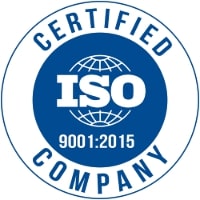BIS Certification for Domestic Switches –IS 3854

Product Description
Domestic
switches are integral to everyday electrical operations, providing safe and
convenient control of household appliances and lighting. Due to their frequent
use and exposure to electrical currents, these switches must adhere to
stringent safety standards to ensure protection against electrical hazards, mechanical
stress, and wear. BIS certification under IS 3854 specifies critical safety
guidelines, ensuring switches provide secure, durable, and efficient
performance for consumers. Certification guarantees compliance with quality and
safety standards, assuring customers of the reliability and longevity of these
switches.
Introduction
The
Bureau of Indian Standards (BIS) mandates certification for domestic and
similar switches under IS 3854, focusing on essential safety and performance
requirements for switches used in residential environments. These standard
addresses key risks such as electric shocks, overheating, and mechanical
durability. Obtaining BIS certification, represented by the ISI mark, is
mandatory for manufacturers wishing to market switches in India, ensuring that
their products meet established safety standards and perform reliably in
household settings.
Why is BIS Certification Necessary for Domestic
Switches?
BIS certification for domestic switches is essential to maintain safety and performance standards, as switches are commonly used in homes and subject to frequent use. Certified switches undergo rigorous testing to meet IS 3854’s safety requirements, including protection against electrical shocks and mechanical wear. BIS certification assures customers that the switch has passed stringent safety and durability checks, enhanced consumer confidence and ensuring safe and dependable use.
Overview of Indian Standard IS 3854
Indian
Standard IS 3854 outlines the safety and performance requirements for domestic
switches, ensuring they meet essential criteria for reliable operation. The
standard focuses on key factors such as electrical insulation, which protects
users from electric shocks even with frequent use. It also mandates heat and
fire resistance, requiring switches to be made of materials that can withstand
high temperatures, preventing overheating and potential fire hazards.
Additionally, IS 3854 specifies mechanical durability, ensuring switches can
endure regular on-off cycles without failure, providing long-term reliability.
The standard emphasizes consistent performance, ensuring switches operate
smoothly without disruptions, making them dependable for everyday household
use. Finally, it addresses arc prevention, ensuring switches are designed to
minimize electric arcs, reducing wear and enhancing safety. Compliance with
these standards ensures that domestic switches are safe, durable, and perform
reliably in residential and similar settings.
Process for BIS Certification
To achieve
BIS certification for domestic switches under IS 3854, manufacturers must
follow these steps:
- Application Submission: The manufacturer submits an
application with necessary documents, including specifications, technical
details, and safety features.
- Document Review: BIS reviews submitted
documentation to confirm compliance with IS 3854 requirements.
- Factory Inspection: BIS officials conduct an
on-site inspection to verify production quality and ensure that
manufacturing processes follow safety standards.
- Sample Testing: Samples are tested in
BIS-approved laboratories to confirm they meet the safety specifications
outlined in IS 3854.
- Certification Grant: Upon successful inspection
and testing, BIS grants certification, allowing the manufacturer to display
the ISI mark on switches.
Documents Required for BIS Certification
Manufacturers
applying for BIS certification for domestic switches must provide the following
documentation:
- Application form
- Product specifications and
technical details
- Quality control and
manufacturing process documentation
- Test reports from
BIS-approved laboratories
- Factory layout and equipment
details
- Proof of business
registration
- Declaration of conformity to
IS 3854 standards
These documents demonstrate the manufacturer’s adherence to the required safety and performance standards.
BIS ISI Mark Certification Costing And Timeline
To Know The Process in Detail, Please Visit:
- BIS ISI Mark Certification for Domestic Manufactures
- BIS ISI Mark Certification for Foreign Manufactures
Under BIS Registration Products ISI and CRS
Conclusion
BIS certification under IS 3854 for domestic switches ensures that products meet the highest safety and quality benchmarks, providing consumers with reliable and safe electrical solutions for household use. Obtaining BIS certification demonstrates a manufacturer’s commitment to safety, enhancing customer trust and product credibility. EVTL India, an expert consultancy, supports manufacturers in navigating the BIS certification process, from documentation to testing and compliance requirements. With EVTL India's assistance, manufacturers can streamline certification, ensuring their switches meet BIS standards and are ready for market entry.























